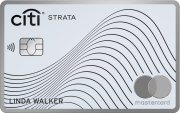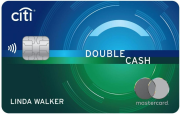The content on this page is accurate as of the posting date; however, some of the offers mentioned may have expired.

Though credit cards have become part and parcel of the modern society, there are customers who still hesitate what is better - apply for one or more enticing credit cards or get a traditional loan which is basically considered to be older and so safer. Up till now these two forms of lending money have co-existed perfectly well, giving people both, their typical benefits or drawbacks.
So, what are the personal considerations customers are guided by when choosing inflexible and limit fixed loan or a reward credit card with no annual fees?
Somehow it seems that the choice is predetermined and is evidently in favor of a low interest and high-limit credit card. Such a profitable credit card application does look winning against a loan which you are supposed to spend, repay with a fixed interest and never re-borrow any part of it.
On the other hand the fixed rate associated with a traditional loan reduces the risk of accumulating credit debt and lets you feel more or less secure. You know how it happens with credit card companies which raise the credit card fees and rates on all your credit cards once you are delinquent on just one of them. Universal default - that's what they call it.
Now, what do people usually choose - stability and safety with access to only a limited amount of money or a great risk of debt and even bankruptcy with flexible credit card programs?
The research shows the choice depends mainly on the purpose of borrowing the money and, unfortunately - not on the spending habits and self-discipline of the borrower or credit card applicant. As things are today, most choose for credit cards.
It is bitter truth that most credit consumers are still more concerned with the profit they get out of their loan or line of credit than with the way they carry their paying obligations. And as far as credit cards are concerned, customer's obligations go much farther as well as their financial stability is easier to shake.
Credit cards have one big trap which is a serious drawback. They give you the impression of having free and unlimited amounts of money, leaving behind the fact that one day the credit will have to be repaid with interest.
One day... that's it. The undefined deadline of the revolving credit you have on your Visa or MasterCard can take you down into a credit card debt spiral and the more you linger with paying off your balances, the deeper down you go.
We do not insist, however, that a similar situation is not likely to happen when you apply for a traditional loan. It is true that the size of the loan is fixed and no part of it can be re-borrowed, thus putting you within strictly defined limits. It means that what you spend - you lose it. It is also true, that a loan offers a fixed rate, thus guaranteeing you a certain, invariable cost of the credit.
All these features do not rule out the fact, though, that if a customer is late or skips his monthly payments, he or she will not be punished with increased interest rates or late payment fees. A loan functions just like a credit card with the only exception that it lacks flexibility.
That's why, if you are not sure in your ability to pay your outstanding balance every month, you'd better apply for a loan rather than credit card, that's for sure. Unfortunately, the capability to meet one's credit card obligations has escaped the minds of most customers so far.





